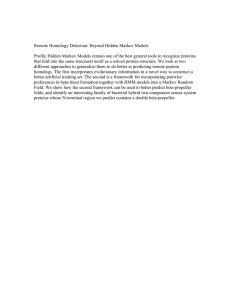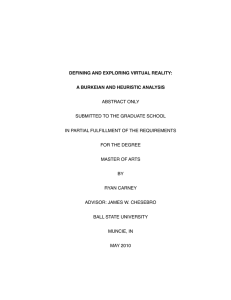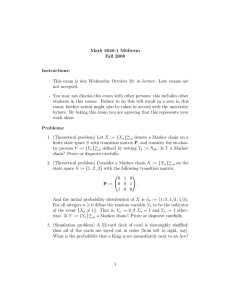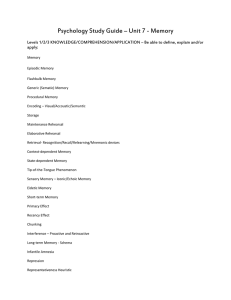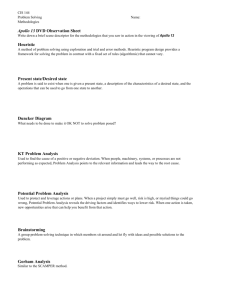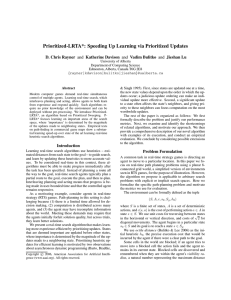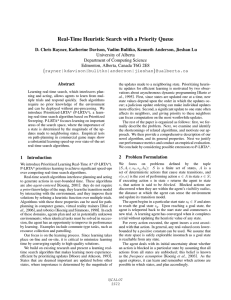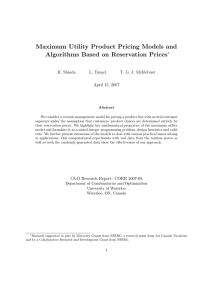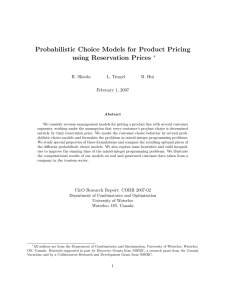Optimal Scheduling Among Intermittently Unavailable Servers Simon Martin & Isi Mitrani
advertisement
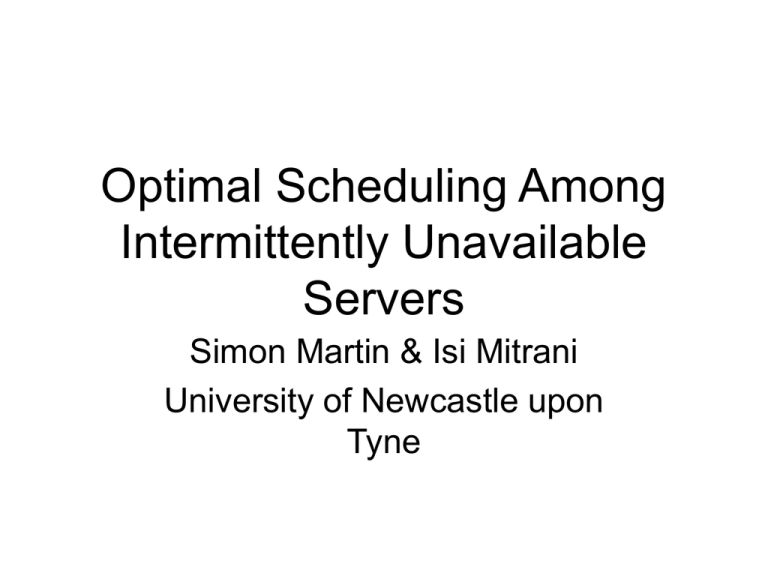
Optimal Scheduling Among Intermittently Unavailable Servers Simon Martin & Isi Mitrani University of Newcastle upon Tyne Model m1, x1, h1 Arrivals l policy m2, x2, h2 Parameters • Arrival rate = l At queue i (i=1,2) • Average service time = 1/mi • Average operative period = 1/xi • Average repair time = 1/hi • Average holding cost = ci A scheduling policy specifies, for every possible system state, whether an incoming job which finds that state is sent to queue 1 or to queue 2. Problem Find a policy that minimizes average holding costs. Solution • The problem is tackled using the tools of Markov decision theory. • The optimal policy can be computed numerically by – uniformizing the continuous time Markov process, – replacing it with an equivalent discrete time Markov chain; and – truncating the state space to make it finite. Uniformization • The instantaneous transition rates are modified, so that the transition rate out of any state is 1, with the addition of transitions which do not change the current state. max rij i j rij rij qij ; qii 1 l max m1 x1 ,h1 max m2 x2 ,h2 State of discrete time Markov chain S = (i, j, b1, b2, a) • • • • • Number of jobs in server 1: i Number of jobs in server 2: j Availability of server 1: b1 Availability of server 2: b2 Arrival event: a Stationary policy for minimizing total average discounted costs over an infinite horizon V S cS min cd qS , S V S d S This equation can be solved iteratively. The interesting case is →∞ Minimize total average cost over a finite horizon of n steps Vn S cS min cd qS , S Vn 1 S d S Solve recurrences in n steps, starting from V0 S 0 Steady-state average cost per step, independent of the starting state Vn S V lim n n Obtained by simulation Policies examined • Heuristic (smallest expected conditional holding cost per job) • Random • Selective (send only to operative servers; N.Thomas) • Shortest Queue • Optimal (minimal steady-state cost per step) Varying l 100 Random Selective(Nigel) ShortestQueue Heuristic Optimal 90 80 70 Average Cost 60 50 40 30 20 10 0 0 0.5 1 1.5 2 2.5 Lambda 3 3.5 4 4.5 5 Varying m 250 200 Average Cost 150 100 Random Selective(Nigel) ShortestQueue Heuristic Optimal 50 0 0 0.5 1 1.5 2 2.5 Mu1 3 3.5 4 4.5 5 Varying x 200 180 Random Selective(Nigel) ShortestQueue 160 Heuristic Optimal 140 Average Cost 120 100 80 60 40 20 0 0 0.2 0.4 0.6 Xi1 0.8 1 1.2 Varying Holding Cost 140 Random Selective(Nigel) ShortestQueue Heuristic Optimal 120 Average cost 100 80 60 40 20 0 0 0.5 1 1.5 2 C1 2.5 3 3.5 4
